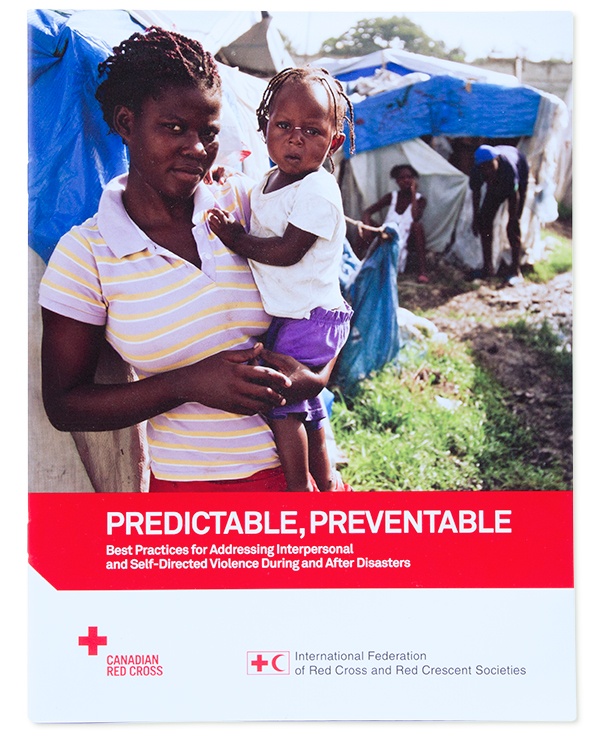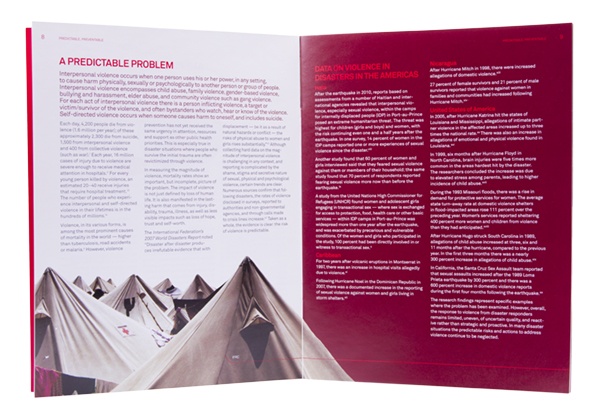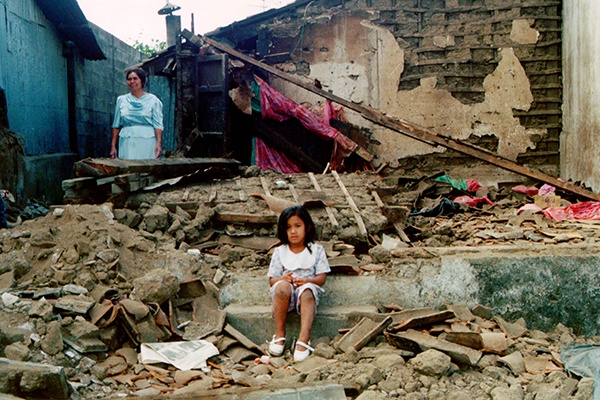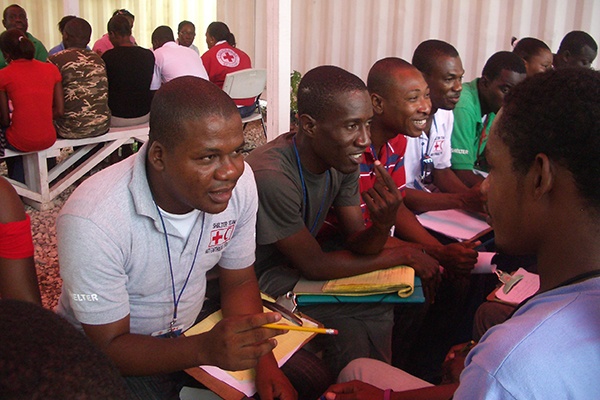Predictable, Preventable Report
When disasters occur, we celebrate heroic moments, ordinary people persevering under trying conditions, and the generosity of contributors to relief efforts. But the devastation from an earthquake, fire, or flood often unleashes our violent impulses. As nerves fray and infrastructure collapses, abuse, sexual exploitation, and harassment diminish the safety and security of disaster victims – especially women and children.
“Violence is hidden,” noted a staff member involved in the Haitian Red Cross’s relief efforts following the 2010 earthquake. “It is not easy to talk about.”
The Canadian Red Cross addressed this dark side in Predictable, Preventable, a report produced with the International Federation of Red Cross in 2012. It investigates the many risk factors which produce and escalate violence during disasters, including various sources of inequality, substance abuse, strains on support systems, and lack of violence prevention education.
“Violence is hidden. It’s not easy to talk about.”
While the report includes sections on vulnerable nations like Haiti and Honduras, it reminds readers that post-disaster violence is not restricted to the developing world. Consider a 600 percent increase in reports of domestic violence in Santa Cruz, California in the four months following the Loma Prieta earthquake in 1989. Or the five-times-above-average rate of brain injuries stemming from child abuse in areas of North Carolina worst hit by Hurricane Floyd in 1999. Following the wildfire which affected Slave Lake, Alberta in 2011, community members observed that official statistics which depicted a decline in domestic violence didn’t factor in that fewer incidents were being reported, and that violent actions moved with evacuees displaced to other locales.
One of the report’s most distressing elements addresses humanitarian aid workers who worsen a situation by abusing their power. When dealing with incidents ranging from causing physical injuries to demanding sex for aid, merely implementing a code of conduct doesn’t go far enough.
To combat disaster-related violence, the report suggests better training for responders and residents to deal with emotional trauma, prepare Red Cross staff and volunteers to anticipate and address violence, gather data to get a better sense of the challenges communities face, and work on violence prevention programs. Simple methods of improving safety, as shown in Haiti, include providing lighting for evacuee camps and running a phone text/radio campaign regarding violence prevention.
When disasters occur, we celebrate heroic moments, ordinary people persevering under trying conditions, and the generosity of contributors to relief efforts. But the devastation from an earthquake, fire, or flood often unleashes our violent impulses. As nerves fray and infrastructure collapses, abuse, sexual exploitation, and harassment diminish the safety and security of disaster victims – especially women and children.
“Violence is hidden,” noted a staff member involved in the Haitian Red Cross’s relief efforts following the 2010 earthquake. “It is not easy to talk about.”
The Canadian Red Cross addressed this dark side in Predictable, Preventable, a report produced with the International Federation of Red Cross in 2012. It investigates the many risk factors which produce and escalate violence during disasters, including various sources of inequality, substance abuse, strains on support systems, and lack of violence prevention education.
“Violence is hidden. It’s not easy to talk about.”
While the report includes sections on vulnerable nations like Haiti and Honduras, it reminds readers that post-disaster violence is not restricted to the developing world. Consider a 600 percent increase in reports of domestic violence in Santa Cruz, California in the four months following the Loma Prieta earthquake in 1989. Or the five-times-above-average rate of brain injuries stemming from child abuse in areas of North Carolina worst hit by Hurricane Floyd in 1999. Following the wildfire which affected Slave Lake, Alberta in 2011, community members observed that official statistics which depicted a decline in domestic violence didn’t factor in that fewer incidents were being reported, and that violent actions moved with evacuees displaced to other locales.
One of the report’s most distressing elements addresses humanitarian aid workers who worsen a situation by abusing their power. When dealing with incidents ranging from causing physical injuries to demanding sex for aid, merely implementing a code of conduct doesn’t go far enough.
To combat disaster-related violence, the report suggests better training for responders and residents to deal with emotional trauma, prepare Red Cross staff and volunteers to anticipate and address violence, gather data to get a better sense of the challenges communities face, and work on violence prevention programs. Simple methods of improving safety, as shown in Haiti, include providing lighting for evacuee camps and running a phone text/radio campaign regarding violence prevention.







